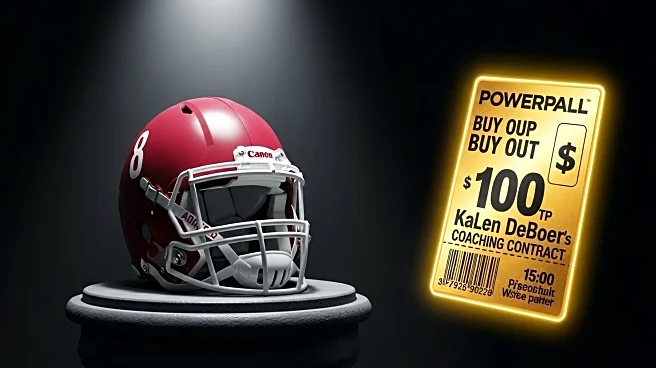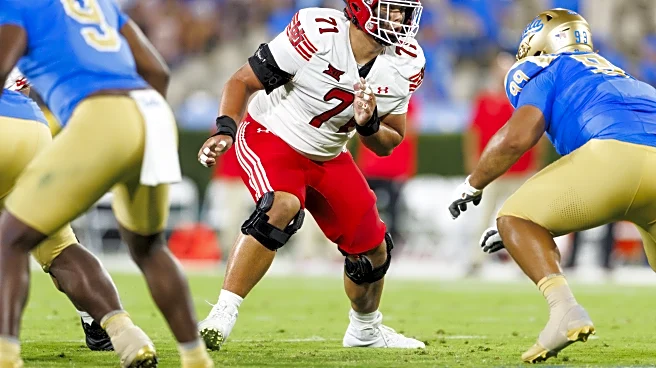What's Happening?
Susie Conerly, a dedicated Alabama Crimson Tide fan, has expressed her intention to use potential winnings from the $1.8 billion Powerball jackpot to pay the $70 million buyout clause in Kalen DeBoer's contract, effectively removing him as head football coach. Conerly's comments were made during a local television interview in North Alabama, where she also mentioned her interest in determining the cost to dismiss Greg Byrne, Alabama's athletic director. DeBoer, who succeeded Nick Saban, has faced challenges since his appointment, with Alabama recording a 9-5 performance since the start of the 2024 season. The team's recent loss to Florida State has further fueled dissatisfaction among fans, as Alabama dropped to 21st in the AP poll, marking their lowest ranking since 2008.
Why It's Important?
The dissatisfaction among Alabama fans highlights the pressure and expectations placed on college football coaches, especially those following legendary figures like Nick Saban. The potential financial implications of such buyouts underscore the significant investments universities make in their athletic programs. If Conerly's plans were realized, it would reflect the intense passion and financial commitment fans are willing to make to influence team management. This situation also raises questions about the sustainability of high-stakes contracts in college sports and the impact of fan sentiment on administrative decisions.
What's Next?
Should Conerly win the Powerball and proceed with her plans, it could set a precedent for fan involvement in administrative decisions within college sports. The university may face increased scrutiny regarding its hiring practices and contract negotiations. Additionally, the outcome of Alabama's upcoming games will likely influence the future of DeBoer's tenure, as continued poor performance could lead to administrative action regardless of external financial interventions.
Beyond the Headlines
This scenario highlights the cultural significance of college football in the U.S., particularly in regions like Alabama where the sport is deeply ingrained in community identity. The willingness of fans to invest personal fortunes into team management reflects broader societal trends of sports fanaticism and the influence of wealth on public institutions. It also raises ethical considerations about the role of money in sports and the potential for it to override merit-based decisions.









